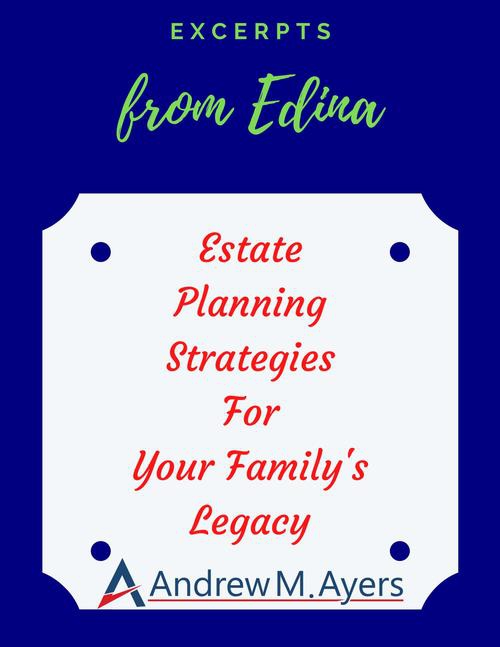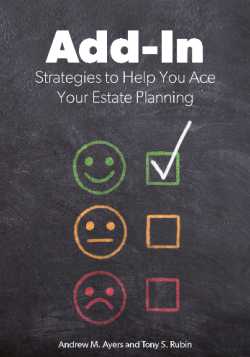 Do I need a Will if I'm Single? When I have a first call or meeting with someone who's not married, that's often the first question we discuss. Although it's extremely important to have an estate plan (either will-based or a more complex one with a trust), many people who are unmarried think it's not something that they need. They've often been told by their parents or other family members that it's a good idea to speak to an attorney about getting one drafted, but it's usually low on the priority list.
Do I need a Will if I'm Single? When I have a first call or meeting with someone who's not married, that's often the first question we discuss. Although it's extremely important to have an estate plan (either will-based or a more complex one with a trust), many people who are unmarried think it's not something that they need. They've often been told by their parents or other family members that it's a good idea to speak to an attorney about getting one drafted, but it's usually low on the priority list.
Or it's also relatively common that clients have recently had their marriage end (either through divorce or the death of their spouse) and they aren't sure what they should do next. Especially if their former spouse was the one in the relationship who handled most of the paperwork and handled their financial accounts, they may not even be comfortable having these discussions about a will. They aren't sure what happens next.
Regardless of the reason why you're single, it's arguably more important that you have an estate plan than if you are married. When you are married, you often share ownership of many if not all of your assets, and if one of the spouses dies, the other spouse does not need to inherit any of the assets, they already have an ownership share. But in this situation, when only one spouse remains, it's imperative that the living spouse get their estate plan in place or update a plan they previously created because when the second spouse dies, there's not always a clear relative who is entitled to inherit the estate.
So if you're single, let's dig a little deeper into why you need a will if you aren't married, even if you don't have kids.
Do I Need a Will if I’m Not Married?
It’s a common misconception that if you are unmarried, you don’t need a will. But this misconception may be different than you think. If you die without a will, then the state where you live will decide what happens to your assets. There is a process laid out in the laws of your state that says what happens. Most likely, a court will be involved in administering the process. If there are things that need to be sold, the court may need to review the proposed sale agreements and sign off on them before it can happen. And the court will also need to decide who gets what based on a scheme laid out in your state’s laws.
(One option for you then is to meet with a lawyer, and have them explain what your local laws say would happen to your estate, and if you are ok with the laws, then you don’t need to do anything)
A Common Misconception
The misconception that I see comes in the idea that you should only be considering a will. When you prepare what is commonly known as an “Estate Plan“, there are other documents beyond just a will. You will likely also have:
In addition to these, I often include a HIPAA Authorization as well for my clients. These additional documents often describe what happens in case you are unable to make decisions for yourself. If you run your own business and are in a coma, who will keep the business afloat? If you’ve been in an accident and can’t make a medical decision, the Healthcare Power of Attorney gives someone else the legal authority to make those decisions. These are considerations for people regardless of whether they are married or not. Especially if you are unmarried and there isn’t someone naturally there to step in and help, these documents make sure that you are taken care of if you are incapacitated in some way.
Do I Need a Will if I Don’t Have Kids?
The other misconception I run into is whether you need to have a will if you don’t have kids. There are plenty of people in this situation who can benefit from an estate plan as well. Just because you don’t have kids doesn’t mean you don’t need an estate plan. In fact, it is almost more necessary in these cases because there is not automatically someone who would naturally inherit your estate. Especially if you have nieces and nephews or cousins that you are particularly close with, an estate plan can make sure that you are able to leave gifts to family members or others. Otherwise, you’re left to the distribution laid out in your local laws…
Do You Need an Estate Plan?
If you need an estate plan or maybe just need to update one you had prepared before, let's schedule a Legal Strategy Session online or by calling my Edina, Minnesota office at (612) 294-6982 or my New York City office at (646) 847-3560. My office will be happy to find a convenient time for us to have a phone call to review the best options and next steps for you to work with an estate planning attorney to get your plan prepared and implemented.




